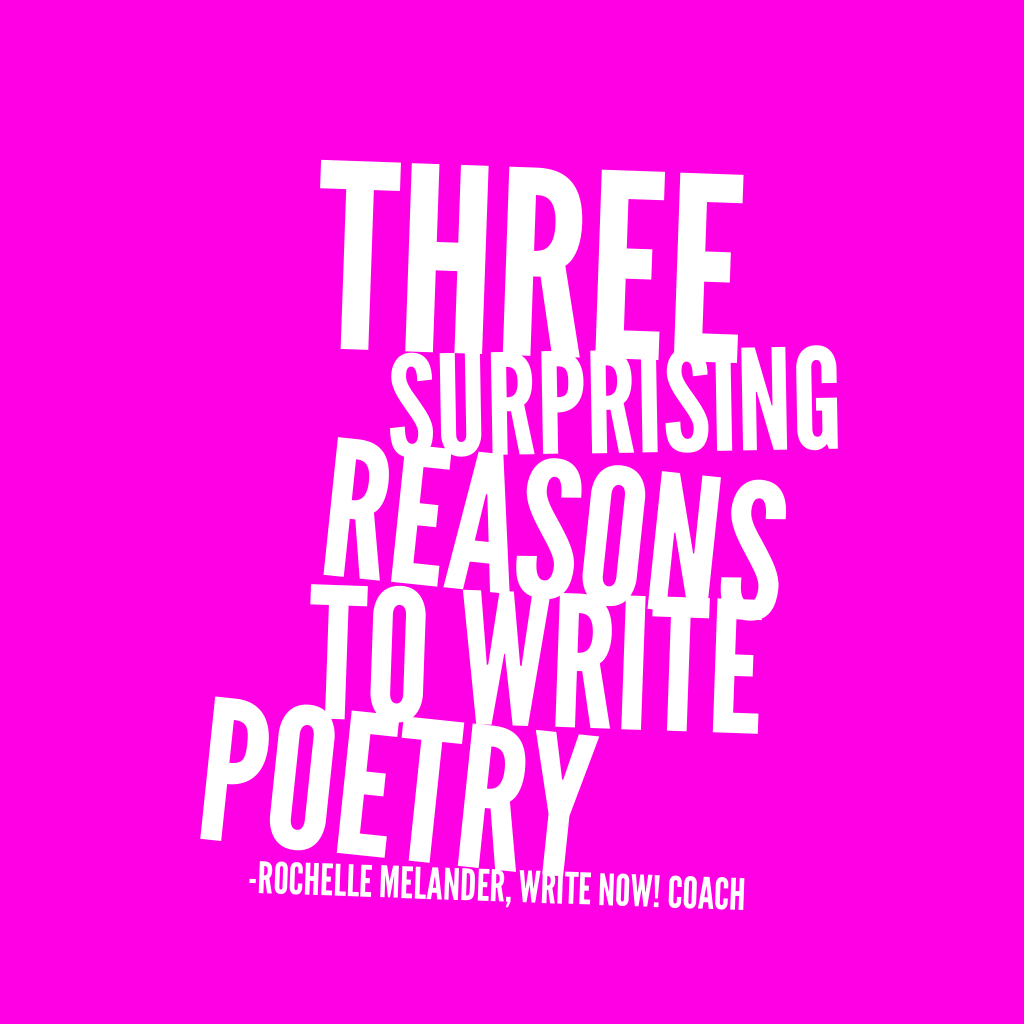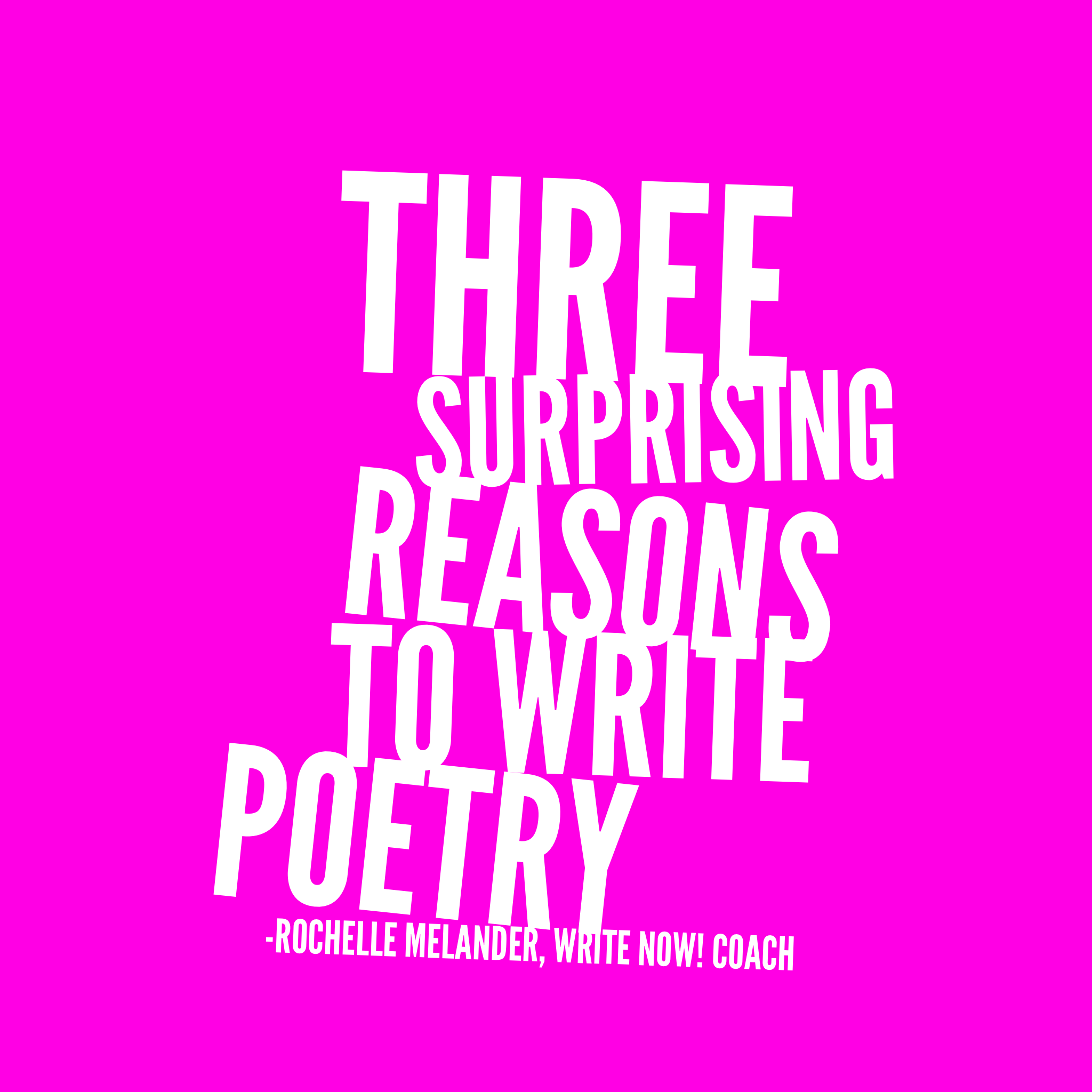Three Surprising Reasons to Write Poetry by Rochelle Melander

Creativity is intelligence having fun. —Albert Einstein
Most of my clients write serious stuff, novels about tough subjects and nonfiction
books with big ideas. Come to think of it, I’m usually writing about the darker parts
of life. That’s why every so often, I like to forget about my big projects and write
poetry, preferably silly poetry.
Tomorrow night, in honor of April Fool’s Day and National Poetry Month, I’ll be
teaching a class on Foolish Poetry at the library. We’ll dust off our rhyming
dictionaries and pen limericks. We’ll puzzle out some riddle poems. And we’ll
put together our irrational thoughts in an absurdity poem.
I don’t believe anyone should have to justify the time they spend writing
poetry—even silly poetry. But if you worry that writing poetry is a WASTE of
time, here are three reasons to try it:
1. You’ll be in good company! Lots of smart people with important day
jobs wrote poetry. Like who?
+Wallace Stevens, a lawyer and vice president of Hartford Accident and
Indemnity Company, wrote several books of poetry including Ideas of Order.
+T.S. Eliot worked in as a clerk in a bank for several years before going on to
work as an editor and professor. He’s the author of many beloved poems, plays
and prose, including, The Waste Land and Journey of the Magi. And of course,
we have him to thank for the hilarious, Old Possum’s Book of Practical Cats
(which became the musical Cats).
+William Carlos Williams, author of the wonderful poems The Red Wheelbarrow and
This is Just to Say (and many others), worked as a physician in Rutherford, New Jersey
for forty years.
(For more day jobs of poets, see this awesome comic.)
2. Your brain will get a workout. Poetry forces you to communicate complex ideas
with just a few words. I think it was Blaise Pascal who first said, “I would have written
a shorter letter, but I did not have the time.” With poems, writers don’t have the
luxury of multiple chapters to unpack the meaning of love, death, and life. They have
to do it in a few lines or stanzas. On top of that, poetry writers have to fit all of their
ideas into a specific format. The best poets choose words with attention to rhythm,
rhyme and so much more. All of this word play stretches your brain.
3. You can work through your emotional baggage. Psychologists have studied
the healing benefits of reading and writing poetry. In fact, there’s even a
National Association for Poetry Therapy. Poetry gives you the opportunity to take
your worst experiences and make sense of them through language. (If you need a
book on this, try Poetic Medicine: The Healing Art of Poem Making by John Fox.)
Are you convinced yet? If so, grab a notebook and a pen and play with words.
If you need a little support, try one of the prompts I’m giving to my class
tomorrow night:
1. Writing a poem about a made-up illness. Take a look at this wonderful list of
medical prefixes and suffixes online and use it to make up a few diseases like:
Praiseorrhea—what first-time parents do when their children do ANYTHING.
Blabiosis—what my children say I do with my friends.
Scoliology—the study of twisted things
2. Write a riddle poem
Here’s one from The Guess Book (c. 1820)
Riddle: The beginning of eternity,
The end of time and space,
The beginning of every end,
And the end of every place.
Answer: The letter e
3. Write a limerick.
It doesn’t have to be about a naked lady. Try one about someone who annoys
you or something that puzzles you, like time travel. Here’s a fun one:
There once was a young lady named bright
Whose speed was much faster than light
She set out one day
In a relative way
And returned on the previous night.
– Anonymous
Happy Poetry Writing!










I’ve been intrigued by the six word story. This was mine: plunging 7 floors, she became lunch. It obviously leads to other questions. Bonny
Bonny, I love it! Thank you!